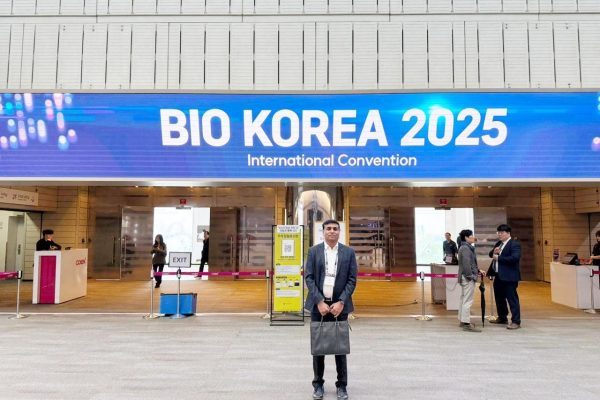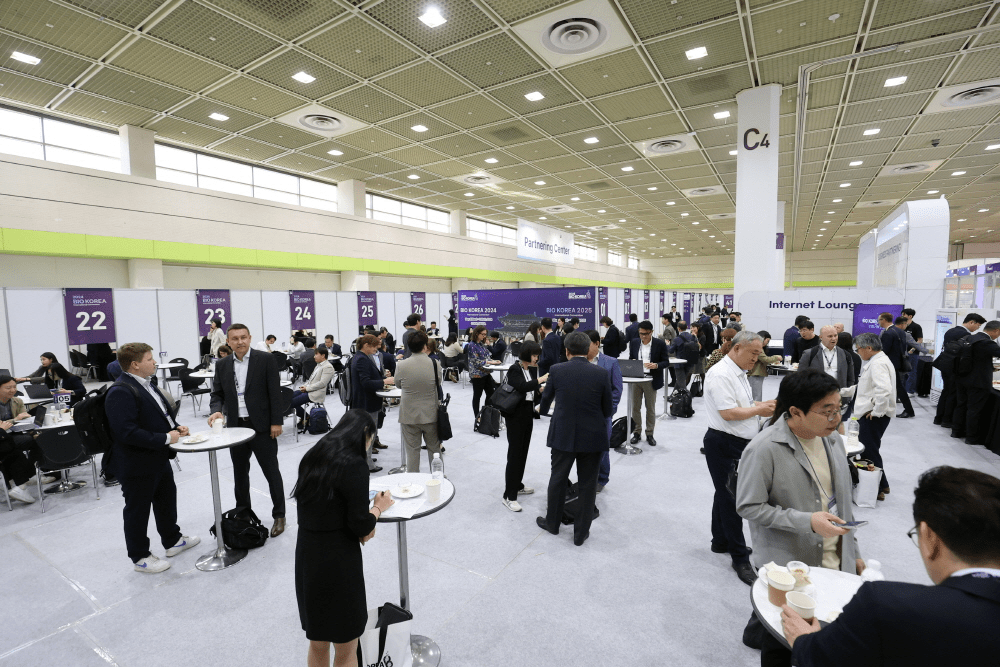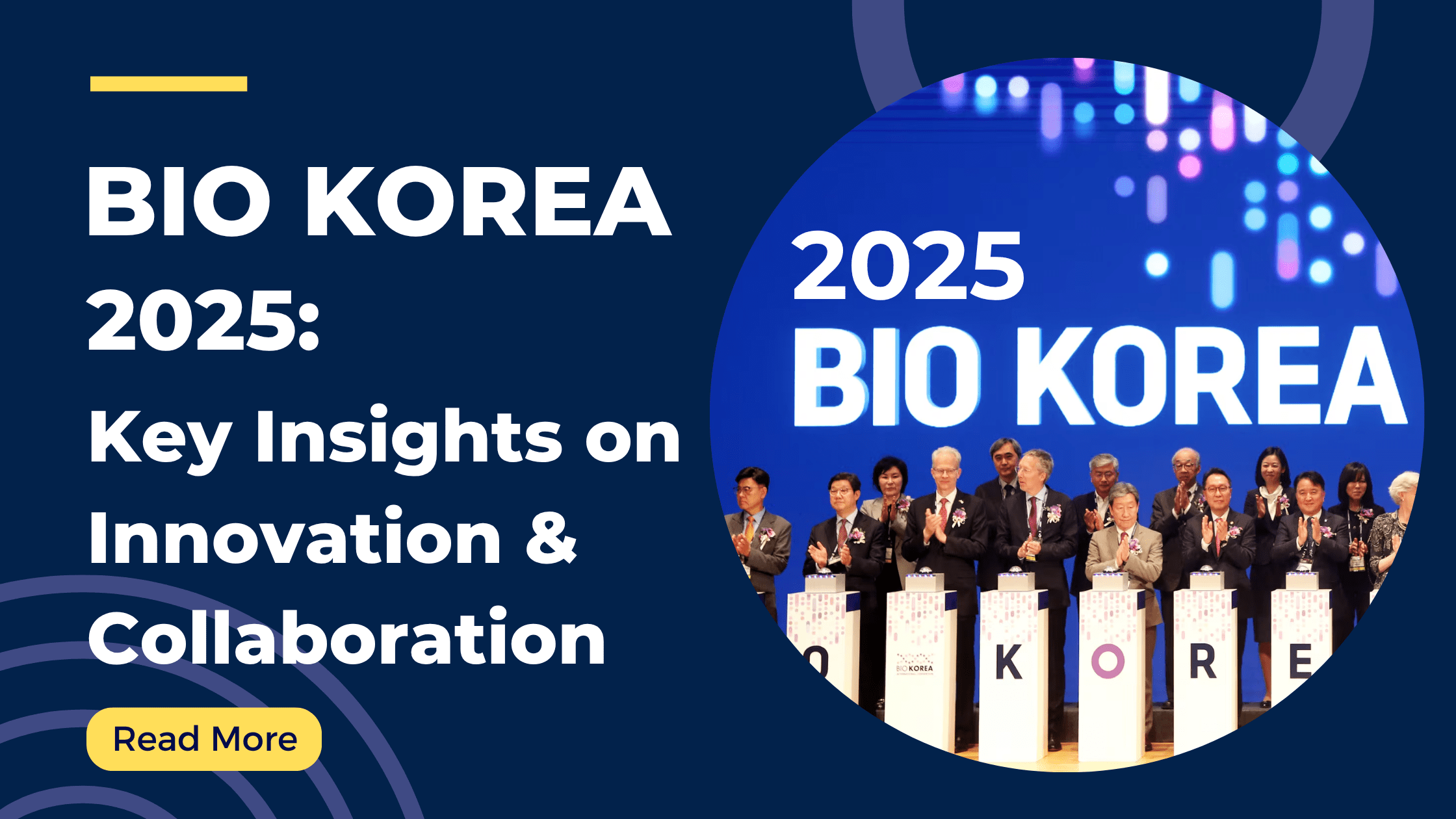Insights from Bio Korea 2025: How South Korea is Shaping the Future of Global Healthcare & Biotech Innovation
My Experience at Bio Korea 2025: Insights on Innovation, Technology & Global Collaborations
By Pawan Bhusari, CEO | Published June 2025
Introduction
From May 7th to 9th, I had the privilege of attending Bio Korea 2025, one of Asia’s most influential biotech and healthcare conferences, held at COEX in Seoul, South Korea. As a business development professional, this event was truly a revelation. It brought together cutting-edge global innovation, smart, tech-driven healthcare solutions, and robust business partnering opportunities, all within an exceptionally advanced and welcoming environment.
The exhibition floor buzzed with transformative ideas—from AI-powered diagnostics and decentralized clinical trials to next-generation biologics and digital therapeutics. Every booth and discussion reflected the global push toward precision medicine and patient-centric innovation.
What stood out to me was not just the scale of the conference but the quality of conversations and the collaborative mindset among participants. I had the opportunity to connect with clinical research organizations, biotech innovators, pharmaceutical companies, and government agencies—all looking to shape the future of healthcare together.
South Korea left a lasting impression. Beyond its biotech leadership, the country’s world-class infrastructure, highly digitalized healthcare ecosystem, and forward-thinking regulatory landscape exemplify what it means to be future-ready in life sciences. It’s no surprise that Korea is becoming a global hub for clinical research and innovation.
Attending Bio Korea 2025 reaffirmed my belief in the power of global collaboration to drive meaningful change in healthcare. I return inspired, informed, and more committed than ever to advancing innovation through strategic partnerships.
Technology Trends That Stood Out at Bio Korea 2025
AI & Big Data in Drug Discovery
Cell & Gene Therapies
Smart Medical Devices
Digital Health Ecosystems
Green Biomanufacturing
Highlights from the Conference – Day-Wise Summary


Day 1: Exploring the Future of Medicine
AI-Based New Drug Development
Artificial intelligence is revolutionizing drug discovery. Korean and global companies showcased AI tools that predict compound behaviour, optimize clinical trial designs, and shorten R&D timelines.
Brain-Computer Interface (BCI)
We explored how neural signals are being used to control external devices. The possibilities for neuro-rehabilitation and assistive technologies are inspiring.Regenerative Medicine
Advances in stem cell therapy, gene editing, and tissue engineering are transitioning from lab to life. Korea’s high-quality research in this domain is world-class.Day 2: Global Collaboration & Scientific Breakthroughs
Open Innovation in Pharma
Sessions emphasized the value of collaboration between pharma, biotech, and academia to fast-track breakthroughs.Global Bio Governance
A deep dive into how ethics, regulation, and international standards are evolving. Korea is aligning with global norms to enhance biotech governance.Regenerative Medicine
Startups and government-backed initiatives are positioning Korea as a global hub in this domain.New Drug Modalities
Topics included RNA-based drugs, antibody-drug conjugates, and personalized medicine – all pushing the boundaries of modern treatment.Sustainable Global Biopharmaceutical Approvals
Regulatory science and sustainable strategies were discussed to streamline global approval processes.Space Biotechnology
Biomedical research in microgravity and future bio-manufacturing in space were visionary highlights.Day 3: Aging, Trials & Converging Tech
Anti-aging and Rejuvenation
Innovations in diagnostics, biomarkers, and immunotherapy showcased how aging can be slowed for healthier longevity.
Clinical Trials
Korea’s infrastructure and decentralized clinical trials (DCTs) were impressive. AI-based monitoring tools also stood out.
Preclinical – Alternative Toxicology
Focus on organ-on-chip models and AI-driven toxicology as ethical, efficient alternatives to animal testing.
Reverse-Aging Technologies
Sessions highlighted senolytics, longevity-based gene editing, and future-forward regenerative approaches.
Bio-Digital Convergence Technology
The convergence of AI, digital twins, and cloud-based diagnostics with biotech was an inspiring end to the conference.
Business Partnering: A Global Collaboration Hub
One of the most valuable aspects was the Bio Korea 2025 Business Partnering Event, a seamless B2B platform for 1:1 meetings:
Connected with CROs, biotech leaders, regulatory experts, and investors from the U.S., EU, and APAC.
Explored AI-driven clinical trial platforms, regulatory consulting, and out-licensing opportunities.
Each meeting provided real-world insights and strategic value.
Why South Korea Is a Model for Biotech Development
Digitally Advanced Nation
- Fully digitized systems in transport, healthcare, and business.
- Real-time data and AI-driven decision-making.
Regulatory Vision
- MFDS is globally aligned and innovation-friendly.
- Strong infrastructure for clinical trials and global collaboration.
Government R&D Support
- Grants, tax incentives, biotech zones, and innovation parks.
- Target: Make Korea Asia’s top biotech hub by 2030.
Safe, Smart, Systematic
- 5G-enabled hospitals, AI triage, and clean, organized cities ideal for international business.
Conclusion: A Game-Changer for Clinical Research & Innovation
Bio Korea 2025 was more than a conference – it was a gateway to the future of healthcare. For Abiogenesis Clinpharm, it opens new avenues for regulatory alignment, innovation, and strategic international collaboration.
I return from Seoul with:- Actionable leads
- Strategic partnerships
- A fresh perspective on integrating global biotech trends into our vision



